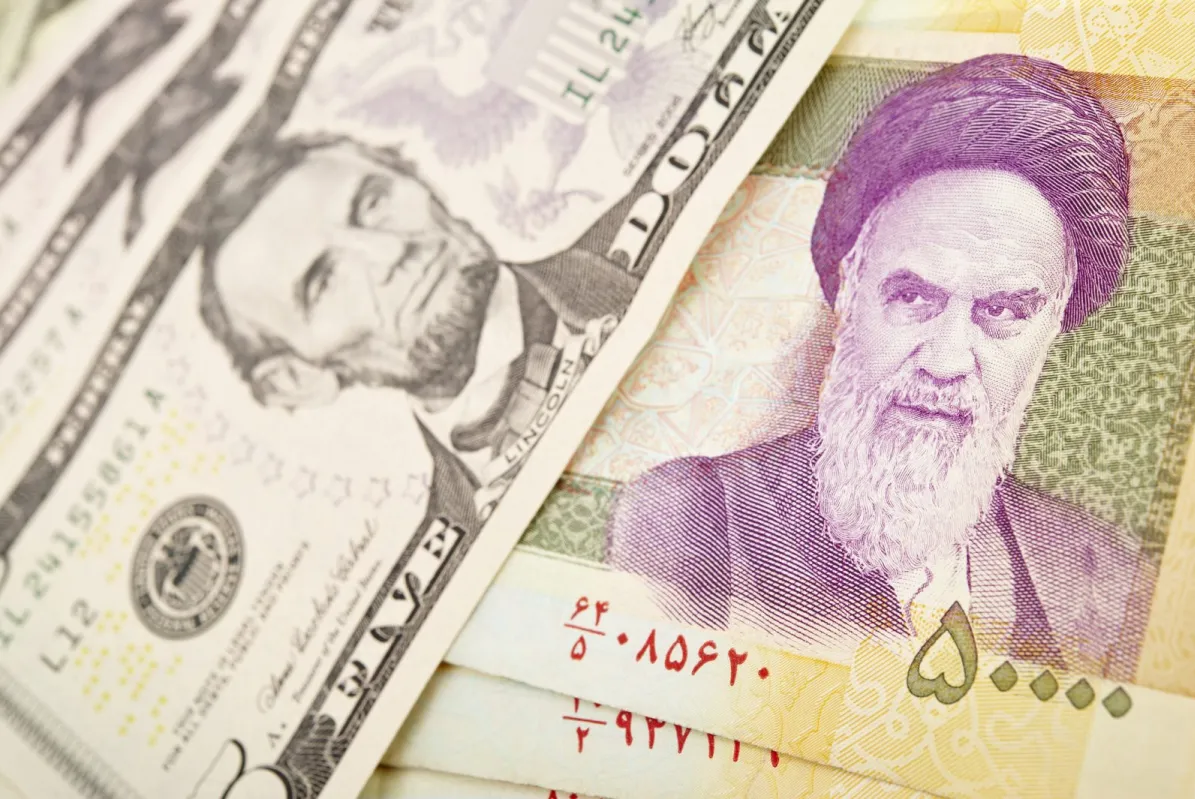Washington’s insistence on imposing stringent restrictions on the disbursement of Iran’s financial dues can be attributed to several factors. The foremost among these is the mounting concern regarding the potential transfer of these funds to the Revolutionary Guard or their allocation to support militias affiliated with Iran in regional countries. Another key consideration is the leverage held by Washington in its dealings with Tehran, amplified by Iran’s reluctance to sign the “FATF” agreement.
Although direct and indirect negotiations between the United States and Iran took place in Muscat and New York during the final stage, they experienced a setback due to unresolved disputes over specific provisions. However, ongoing communication and concerted efforts to establish common ground between the two parties are evident.
On July 17th, Omani Foreign Minister Badr Al-Busaidi visited Tehran. About a week later, Mohammed Al-Khulaifi, the Qatari Minister of State at the Ministry of Foreign Affairs, also visited Tehran. During this visit, the Iranian President extended an invitation to visit Doha. The central objective of both visits was to engage in discussions about renewing the mediation efforts led by Muscat and Doha, aimed at facilitating dialogue between Tehran and Washington.
In this context, Iranian and Omani media outlets released reports on July 25th of the current year. These reports indicated that the United States, which had previously granted exemptions for Iraq to settle its debts with Iran, has now reached an agreement with Iraq. According to this agreement, a portion of Iran’s financial dues will be deposited in an account in the Sultanate of Oman, as a form of payment for energy imports. However, this arrangement comes with a condition that these funds are strictly designated to areas not under sanctions, particularly for humanitarian purposes such as procuring medicine and food. Notably, any transfer of these funds would require approval from the U.S. Department of the Treasury.
A similar approach might be adopted for Iran’s outstanding payments from South Korea, with Qatar potentially serving as an intermediary or financial channel between the two parties.
Specific Deals
In this context, it can be observed that President Joe Biden’s administration is pursuing a multi-faceted agenda through its newly adopted policy towards Iran. Among the foremost objectives, one stands out: the prioritized achievement of a significant agreement pertaining to the American prisoners held in Iran. Notable individuals in this group include Siamak Namazi, Morad Tahbaz, and Emad Sharghi. The administration is confronted with persistent pressures from the families of these prisoners as well as specific political factions. These groups accuse the administration of prioritizing a deal with Iran concerning the nuclear agreement, potentially overshadowing efforts to secure the release of the imprisoned individuals. Allegations have surfaced that the administration has not exerted sufficient endeavors to ensure the prisoners’ freedom.
According to the administration’s perspective, successfully resolving this matter could potentially strengthen President Biden’s position as the U.S. presidential elections in November 2024 draw closer, with the political campaign expected to commence several months earlier. Moreover, securing the prisoners’ agreement might also enhance the prospects of attaining another pivotal agreement of comparable importance, specifically in relation to the nuclear agreement.
Different Considerations
With that in mind, the U.S. administration has demonstrated flexibility in granting Iran partial access to its frozen financial assets held overseas. This calculated gesture is seen as potentially contributing to the advancement of the nuclear deal while also furnishing a rationale for the pro-deal faction within Iran to uphold it against the challenges and criticisms posed by influential hardline elements within key decision-making bodies.
Nevertheless, the administration also seeks to institute precise controls over the allocation of these funds. While these restrictions on Iran’s financial assets might provoke heightened criticism from domestic hardline factions within Iran regarding the ongoing negotiations with the U.S. administration, they do not undermine the administration’s evident resolve to continue with their implementation. This determination can be comprehended by considering the following factors:
- One objective is to curb Iran’s unrestricted use of its financial dues, particularly to offer further assistance to foreign allies, including Shia militias accused of launching attacks against U.S. forces in Iraq and Syria. There are also concerns about support to certain Sunni factions like Hamas and Islamic Jihad. While the released funds might not constitute a significant proportion when compared to Iran’s claimed overseas holdings, which are estimated at approximately $100 billion, the funds set to be deposited by Iraq in an account in Muscat are around $2.7 billion. Nevertheless, it remains important to note that Iran has a history of finding ways to bypass imposed restrictions, potentially aiming to allocate these funds for purposes separate from official government spending on public sectors.
Although Iranian support for regional allies has long been a source of worry for Washington, the level of concern has intensified, particularly as Iran escalated tensions over the nuclear agreement and sanctions. This escalation became evident when Iran directed its associated Shia militias to launch persistent attacks on U.S. bases in Iraq and Syria. The severity of this situation has heightened to the point where the U.S. administration recently contemplated pursuing agreements with Iran that go beyond the scope of the nuclear deal. These potential agreements could encompass measures aimed at curbing Iran’s ability to sustain these attacks through its linked militias.
- Apprehensions about Funds Flowing to the Revolutionary Guard: Within the U.S. administration, there exists a concern that these funds could ultimately find their way into the coffers of the Revolutionary Guard. Such a scenario would enable the Guard to operate autonomously, detached from official state institutions, thereby advancing its own interests and regional initiatives. These undertakings gained momentum following the assassination of Qassem Soleimani, the former commander of the Revolutionary Guard’s Quds Force, in a U.S. military operation on January 3, 2020. American apprehensions are further exacerbated by the potential activities the Guard might embark upon, particularly given its cautious approach toward discussions involving the government of Ibrahim Raisi and the U.S. administration, whether conducted directly or indirectly. The Revolutionary Guard continues to take actions that signal its persistence in aggressive actions against Washington, even if a deal is forged in the forthcoming phase.
- Maintaining Strategic Leverage Against Tehran: The U.S. administration maintains that granting exemptions to facilitate Iran’s access to a portion of its overseas funds will not diminish the strategic leverage it wields over Iran. This stance is rooted in the fact that the released funds, as previously mentioned, constitute a minor fraction in comparison to Iran’s existing deposits in foreign banks. Consequently, should negotiations with Iran encounter further setbacks, whether regarding the issue of prisoners or the nuclear agreement, the U.S. administration retains the option to once again heighten the level of restrictions imposed on Iran’s ability to access its overseas financial holdings. This might extend to constraints on Iran’s ongoing oil exports, which run afoul of the U.S. sanctions levied against such activities.
- Iran’s Non-Adherence to the FATF Agreement: Western countries generally uphold the requirement that a comprehensive deal with Iran, potentially leading to the lifting of a substantial portion of imposed sanctions, hinges on Iran’s participation in the Financial Action Task Force (FATF). This international body is dedicated to combating money laundering and terrorist financing. The rationale behind this stance lies in the recognition that, under such circumstances, Iran would gain access to a significantly larger share of its frozen overseas funds. Consequently, Iran could allocate a fraction of these funds to organizations designated as terrorist entities by Western nations. These entities include Hezbollah, Hamas, and Islamic Jihad, alongside the Shia militias that Iran has established and trained in Syria, as well as the “Ansar Allah” organization in Yemen.
A Crossroads
Considering these factors, it can be concluded that the existing understandings between Washington and Tehran have arrived at a crucial juncture. The attainment of the prisoners’ agreement would likely pave the way for a renewed potential for a fresh nuclear accord. On the contrary, if the initial deal encounters obstacles, the outlook for the subsequent agreement could be adversely affected. The outcome will wield substantial influence in shaping the extent and orientations of tensions between the involved parties in the forthcoming phase.


